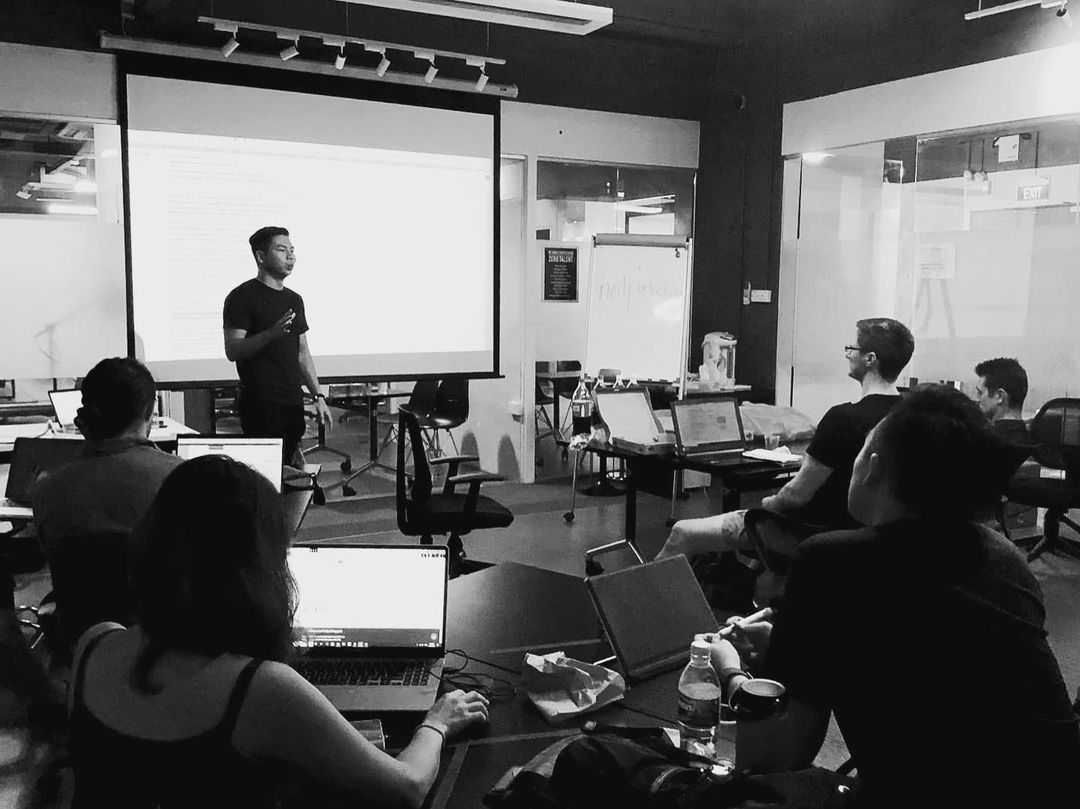Only 24 And He's Gone From Street Gangster To School Dropout To CEO
Some people have the luxury of doing a one-eighty on their lives, but for Caleb Sim, he had no other choice.
“I didn’t have a degree; I didn’t want to get one, and I didn’t want to work for anyone. But I was not going to take a cent from my parents. In fact, I had to feed the family. Business was the only way for me to live the way I wanted to,” he says.
And that’s how he continued to push himself even after shaky beginnings and subsequent business failures. Caleb always had an eye for business since he was young. Mixing with the wrong crowd, he made $180 dollars in two minutes by selling game credits from stolen phones.
For someone so young, he's had quite a life, and more than a few run-ins with the law: not only was he a street gangster, he also abused drugs, played online casinos, and sold keychains to support his bad habits. Caleb was arrested three times, and dropped out of school twice (once in secondary school, and again in polytechnic).
The turning point: when his parents started facing financial problems; it spurred Caleb to help support his family, despite several botched ventures. Today, he makes a whopping $50,000 a month as the CEO of GENIA, an SEO Digital Marketing Company.
“Real entrepreneurs will never go hungry. If one business fails, we don’t cry over it. We find the next opportunity and we make it happen,” he says.
We speak to the 24-year-old about his life journey and how he managed to navigate its twists and turns to get to where he is today.

How did your parents and loved ones react to you mixing with the wrong crowd, getting into trouble with the law, then pursuing your business ventures and now making $50k a month?
Coming from a Christian family, I was expected to grow up as a good Christian kid, and the way I turned out was a complete shock to my parents. They never thought it was possible and they didn’t really know what to do. They would often lock themselves in the room to cry and pray.
When I started the business, my dad would always ask me to go back to poly and complete my diploma. He doesn’t anymore.
I’d say my family (my parents and my sisters) are proud. I went from being the major heartbreak of the family to being the financial provider at home.

You had zero experience in tech or business when you started your first software company. What gave you the confidence to make that leap of faith? If you could do it all over again, would you?
Before I started my first company, I was working at another software company (fresh out of O levels). I was the top salesman during that period, and figured that I knew how to sell - I just needed to have my own product. I wouldn’t say it was a leap of faith at that time.
I was barely starting poly and only 18 years old. I was so young that failure wouldn’t affect my future. The worst that could happen was that I ended up with a failed business. But even then, I’d gain a ton of valuable real-world business experience that I’d never come close to getting in school. The best part: I have a successful business that makes money and [helps me gain] experience too.
Of course, I’d do it over and over again. There’s nothing else for me but business. It isn’t just a means to make a living anymore. It’s a hobby, a passion, and an obsession.

Before you enlisted for national service, you did an internship with a brain training company - but even after learning about different types of businesses, nothing seemed to work. How did the idea for GENIA come about?
My first business was a B2B software company, and that got me really excited about working with businesses. One of my biggest obsessions in life is growing businesses - both mine and my clients. I studied SEO on my own to help my dad grow his music school - and the results were pretty good.
If I could help him, I could help other businesses too. I knew that if I could help businesses make money, I’d be paid well, and that’s why I started GENIA - to help businesses make more money.
You founded GENIA when you were in NS and had to manage it during your enlistment. Did your NS experience inspire you or your career in any way?
NS housed me for 2 years when I wasn’t ready for the real world - I was a tank operator from 48 SAR. I only had O levels as my highest academic qualification; there was no way I could go out and work for anyone. My family wasn’t rich either, and I was not going to get financial support as I started my career. All I knew was that by the time I ORDed, I had to have a business that worked and there was no two ways about it.
Two years in the army was a perfect place to test ideas and fail without consequences - and thankfully, GENIA worked!
If you had to do an elevator pitch about GENIA, what would it be?
GENIA helps businesses build a consistent, growing stream of leads and sales in 90 days with semantic SEO. (Semantic SEO is the fastest way to get on the first page of Google without getting affected by algorithm updates).
Your story is a great lesson in how hard work pays off. Did you ever imagine that you would be where you are right now?
I always believed deep down that I was going to do something great, that I was going to make it in business. But when my first business failed, and other ideas did not take off, I started doubting myself. Last January, I was making about $2,000/month, and it was really scary, I was getting a little panicky. The goal back then was to make $10k/month.

Career-wise, what is one of the hardest challenges you’ve come up against, and what did it teach you?
My first software business in polytechnic took off and it was doing 5-figures monthly. I lost interest in school and eventually dropped out thinking that I was going to make a lot of money as an entrepreneur.
I was naive. My business then could only make money because the Government was paying for the software. When the grant stopped, nobody would buy my products. My business died right after the grant stopped. I was now out of school and without a business.
I tested out many businesses before I got to GENIA - casual labour, web design, app ideas, and productivity software.
The biggest lesson I learnt: to truly grow a business in the long run, you have to provide real value. When there’s real value provided, people are willing to pay a premium. When there’s no real value, people wouldn’t even want it for free.
As long as I can continue providing real value, either making people’s lives more pleasurable or less painful, I’ll always prosper.
For the latest updates on Wonderwall.sg, be sure to follow us on Facebook, Instagram and Telegram. If you have a story idea for us, email us at [email protected].











